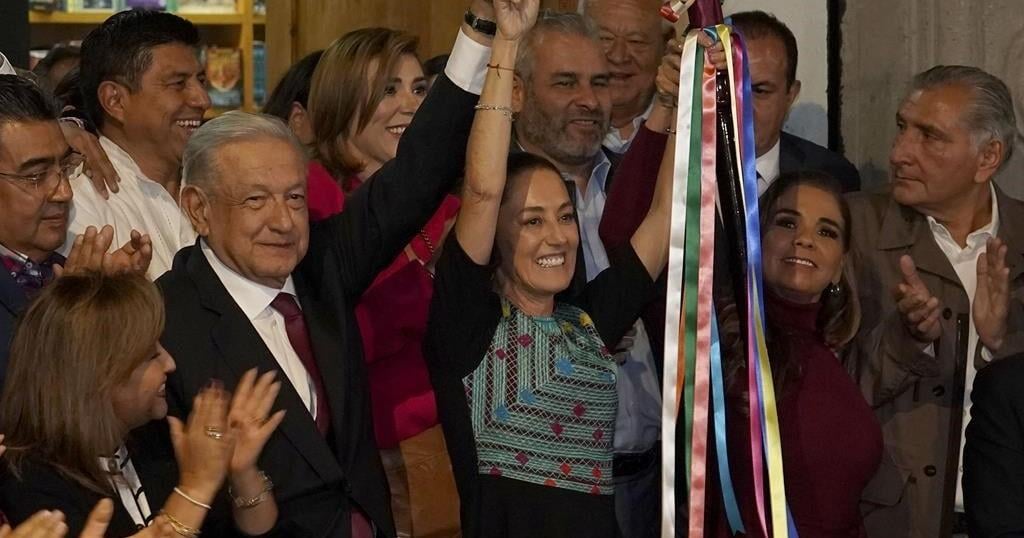MEXICO CITY (AP) — In a U.S. electoral campaign punctuated by jibes about “childless cat ladies,” some might wish there were rules against mocking candidates just because of their gender. Mexico — which just elected its first female president — has such a law, but it turns out it’s not as easy as all that.
The debate centers around a hard-fought race between two female candidates for a Mexico City borough presidency. An electoral court overturned an opposition candidate’s victory, ruling that she had committed “gender-based political violence” against the losing, ruling-party candidate.
Outgoing President Andrés Manuel López Obrador suggested Monday the ruling could create a dangerous precedent, even though the losing candidate belonged to his own Morena party.
“We should be careful about this,” López Obrador said. “When insults, real or imagined, can be cause, or could be a cause, for overturning or nullifying a victory, that is something else altogether.”
The dispute arose after opposition Alessandra Rojo won a narrow victory over Morena’s Caty Monreal in the race for the borough that includes downtown Mexico City. During the campaign, Rojo brought up the fact that Monreal’s father, Ricardo Monreal, is a leading Morena party politician, suggesting she may have been the candidate because of her dad’s influence.
The court ruled last week that the comment violated a Mexican electoral law that prohibits “slandering, insulting or seeking to disqualify a female candidate based on gender stereotypes,” in this case, beliefs that women succeed in politics based on their husbands’ or fathers’ political power.
It brings up obvious comparisons to U.S. politics, and the digs by Ohio Sen. JD Vance, the Republican Vice presidential candidate, about “childless cat ladies” with allegedly no stake in America’s future. It is unclear whether that could be perceived as a dig at Vice President Kamala Harris.
But critics say the fact that Caty Monreal had little political experience — or that her father appears to treat politics as a family business (his brother now holds the Zacatecas state governorship that Ricardo Monreal once held) — could be legitimate points to make.
It also brought up uncomfortable aspects of limits on free speech, or how one female can be accused of committing gender violence against another.
Rojo has vowed to appeal the ruling, saying she is fighting “so that never again can the struggle and fight against gender-based political violence be used as a weapon against the very thing they are trying to protect, the rights of all women who participate” in politics.
Caty Monreal wrote in her social media accounts that “saying that I’m a puppet …violence cannot be disguised as freedom of expression.”
Julia Zulver, a Mexico-based expert on gender violence for the Swedish Defence University, said a much-needed law may have become politicized, noting exclusion and repression of women is “a vast and serious problem in Mexico, and should be taken seriously.”
“The way gendered violence is being spoken about and politically mobilized here is a little concerning,” Zulver said. “It dilutes the power of a law to protect against a real problem.”
It’s not that the Mexican law doesn’t have its place or use. López Obrador was himself accused of gender-based political violence during the run-up to this year’s presidential campaign by opposition candidate Xóchitl Gálvez, after the president claimed she had been chosen by a group of conservative men who propped her up.
In that case, an electoral court ruled that López Obrador had in fact violated the law, but said he couldn’t be punished for it because the rules prevent courts from sanctioning the president. Another female candidate, former Mexico City Mayor Claudia Sheinbaum, of López Obrador’s Morena party, went on to win the June 2 elections by a large margin and will take office on Oct. 1.
